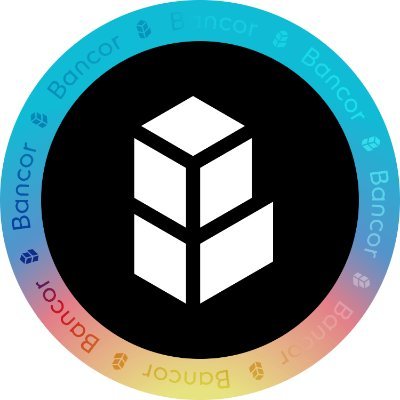How do geopolitical conflicts profoundly impact the world of cryptocurrency?
Author: Loopy Lu, Odaily Planet Daily
In the context of the escalating Israel-Palestine conflict, the seemingly "detached" world of cryptocurrency is also struggling to escape the turbulent influence of geopolitical unrest.
On one hand, an increasing number of Israeli projects are affected, while on the other hand, cryptocurrency projects compliant with Islamic law are once again drawing attention.
The major events in the real world provide a different perspective for observing the cryptocurrency market—how geopolitical conflicts deeply influence the crypto world, and how the crypto world reacts back to the real world.
Crypto Institutions Entangled in Conflict, Subject to Stronger Regulations
The most direct impact of this war on the crypto industry is that large institutions are forced to respond.
According to the Israeli government's seizure orders and blockchain analysis reports, organizations such as Hamas, the Palestinian Islamic Jihad, and Lebanon's Hezbollah received substantial funding through cryptocurrencies in the year leading up to the attacks. Analysis from the crypto research firm Elliptic shows that digital wallets associated with the Palestinian Islamic Jihad received as much as $93 million in cryptocurrency between August 2021 and June this year. The BitOK research report indicated that wallets related to Hamas received approximately $41 million during a similar period.
According to local Israeli media Calcalist, the Israeli police have frozen cryptocurrency accounts related to the Palestinian terrorist organization Hamas. It is reported that the cyber enforcement team of Lahav 433, a branch of the Israeli police, collaborated with the country's Ministry of Defense, intelligence agencies, and cryptocurrency exchange Binance to locate the relevant accounts, and the seized funds will flow into the Israeli treasury.
After Binance assisted the Israeli police in freezing Hamas-related cryptocurrency accounts, He Yi responded, "Any international organization, including any bank or trading platform, must cooperate when asked to freeze accounts; this is not a decision made by Binance alone. I have no political stance. However, no trading platform can refuse this law enforcement request." Today, she further explained, "International business entities need to follow international law enforcement principles, which include almost all major international business entities."

This freezing has sparked extensive discussion in the crypto world. An interesting observation is that previously, geopolitical unrest often indirectly influenced the crypto world by affecting the macro economy. However, as the power of cryptocurrency grows and becomes more "mainstream," issues of regulation, compliance, and law are increasingly intertwined with the crypto world.
Undoubtedly, compliance will always be a step that the crypto world must take.
Industry insiders have once again realized that compliance and regulatory pressure have always accompanied the development of centralized crypto institutions, and crypto exchanges and institutions are more actively cooperating with governments and international regulatory bodies to ensure their business compliance.
In a geopolitical conflict, the fact that crypto institutions are forced to become involved indicates that cryptocurrency funding channels have become part of international political issues.
The emergence of these signs illustrates a fact—the crypto world and the "off-chain world" are increasingly strengthening their connections.
Multiple Projects Affected, Israel Particularly So
The strong correlation between the "two worlds" extends beyond regulatory aspects.
The once-popular Ethereum staking infrastructure SSV Network has been significantly impacted. SSV founder Alon Muroch, located in Israel, posted on X, stating, "I have been drafted; the reality is much worse than what the news describes. The only word I can think of is 'massacre,' and 90% of the victims are civilians. We are trying to turn the situation around, but this process will neither be short nor pleasant."
With the founder being drafted, the SSV project is increasingly filled with uncertainty. According to OKX market data, SSV's volatility today reached 9.7%, with a low of 13.72 USDT. After the news broke, the price quickly fell, but it has gradually rebounded since.

SSV is not the only project affected by the situation in Israel. The Layer 2 network StarkNet is another crypto project that has garnered attention.
For a long time, StarkNet has been challenging the patience of "yield farmers." Users have been frequently interacting with this project in hopes of receiving airdrops, but the airdrop plan has yet to be announced.
Founded in 2018, StarkWare (the parent company of StarkNet) is headquartered in Netanya, Israel. As the Israel-Palestine conflict intensifies, the uncertainty surrounding this project has raised concerns within the community. Some community members have even taken the opportunity to voice their frustrations.

Dune data shows that Starknet's bridging TVL is nearly 700,000 ETH, currently reaching 684,654 ETH, with a total on-chain bridging user count of 1,095,635. This data ranks among the top in Layer 2 networks.
Dune data also shows that Arbitrum's on-chain bridging TVL is 2,952,916 ETH, Optimism's bridging TVL is 623,471 ETH, zkSync's bridging TVL is 1,997,927 ETH, and Base's bridging TVL is 217,036 ETH.
In addition to projects being directly affected, support for Israel is also unfolding in the crypto world.
Messari founder Ryan Selkis posted on X, stating that Yuval Rooz, co-founder and CEO of Digital Asset, immediately flew to Israel to provide assistance after the Hamas attack. He is raising funds for aid and personally pushing for it on-site.
Moreover, the native crypto community in Israel has announced the establishment of Crypto Aid Israel, which will host a multi-signature wallet controlled by multiple parties. The assets will be managed by the crypto custody company Fireblocks. Fireblocks has stated that it has implemented strict custody policies and is collaborating with several well-known companies in the industry for signatures, including Fireblocks, MarketAcross, Collider Ventures, Crypto Jungle, and the Israel Blockchain Association.
Will the Crypto World Become Another Battlefield?
The natives of the crypto world are participating in this geopolitical conflict in various forms. "Israeli concept coins" have also become a way to express attitudes. CoinGecko data shows that NFT trade platform NFT rade, headquartered in Israel, saw its token NFT D experience a rapid increase, with a 24-hour rise of up to 5.9%.
How many crypto projects are there in Israel?
According to Collider's statistics, Israeli projects cover Layer 1, Layer 2, infrastructure, NFTs, DeFi, and various application layer projects, almost encompassing all areas of the crypto industry.

Image Source: Collider
Representative projects include Layer 2 StarkNet, Layer 1 privacy network Secret Network, blockchain IaaS platform Orbs, DEX project Bancor, and more.
The article "SSV Founder Drafted? A Look at Notable Israeli Concept Projects" details 16 projects, which will not be reiterated here.
What Islamic Concept Crypto Projects Are There?
When we shift our focus away from Israel, another interesting perspective may be overlooked. As the other side of this geopolitical conflict, does the Islamic world have its own crypto projects?
The answer is yes.
Islam Coin founder Mohammed AlKaff AlHashmi stated, "It is expected that by 2024, the global Islamic finance market will exceed $36.9 trillion."
The Islamic world has a unique financial model—Islamic finance. In this model, interest is considered illegal. Participants in the financial system often share profits to distribute the "fruits of growth." The strong financial attributes of the crypto industry also put the legitimacy of cryptocurrencies to the test.
As early as April 2018, a fintech startup in Indonesia (the country with the largest Muslim population) researched and published an analysis titled "Is Bitcoin Halal or Haram: An Islamic Law Analysis." This report, written by the company's Islamic law advisor, concluded that Bitcoin is generally permissible under Islamic law.
This is the earliest verifiable research on crypto technology and Islamic law.
Since then, institutions in the Islamic world, including the Central Bank of Bahrain, King Abdulaziz University in Saudi Arabia, and the International Islamic Fiqh Academy, have conducted studies on the legitimacy of crypto technology.
Islamic Coin
At the recent Token 2049, Islamic Coin, as one of the main sponsors, has been frequently highlighted.
Islamic Coin may be one of the most representative cryptocurrencies in the Islamic world. Islamic Coin operates on its own HAQQ Network, which aims to establish an Islamic financial ecosystem that strictly adheres to Islamic financial rules and traditional ethics. More importantly, the project also has a Shariah board.
In June of this year, Islamic Coin announced it had received a $200 million investment from digital asset investment firm ABO Digital, bringing its total funding to $400 million.
Islamic Coin co-founder Mohammed AlKaff Alhashmi stated that Islamic Coin will conduct ethical checks on projects. Islamic Coin prioritizes the community and will examine the ethical aspects of projects. Firstly, the token will not charge interest without the user's knowledge. Secondly, it will not allow the operation of any negative projects.
Mohammed explained that for the Muslim community, Islamic financial solutions are transparent, and Islamic Coin is designing smart contracts to facilitate Islamic loans. He also stated that this could give rise to a $30 trillion market.
Currently, Islamic Coin has been listed on KuCoin.
CAIZ
CAIZ is another Islamic crypto project.
Official information indicates that this is a blockchain ecosystem created in Europe that complies with Islamic law, aimed at serving the global Muslim community.
Technically, CAIZ uses a hard fork version of Stellar as its blockchain, and the project has released CAIZcoin and its own CAIZchain.
The project team states that CAIZchain will build financial products that meet Islamic ethical standards and support functions such as payments and value storage.
However, this project is still very young and far from mature. The official roadmap indicates that the project is still in its first phase, and its development is far from complete. "Secret Product No. 2" will be announced in the fourth quarter of this year, along with the release of CAIZ tokens.
How Much Potential Does Islamic Finance Have?
Although Islamic finance has already secured a place in the global financial landscape, the market for Islamic fintech companies remains relatively small, according to a report by financial services companies DinarStandard and Elipses.
Data shows that this market is still in its infancy, currently estimated at around $79 billion. However, the growth of the Islamic fintech market is expected to grow at an annual rate of 18%, with the top six countries being Saudi Arabia, Iran, Malaysia, the UAE, Turkey, and Indonesia, collectively accounting for 81% of the total market size.
As early as 2018, Adab Solutions, based in the UAE, attempted to create the world's first Islamic crypto exchange (FICE), where digital currency trading complies with Islamic law. The exchange established a Shariah board to provide guidance for the company's operations to ensure ethical compliance. However, this project has long since faded into obscurity.
With the continuous expansion of crypto technology, more Islamic-compliant crypto products may continue to emerge in the future.
It is reported that the Shariah Advisory Board (SAB) is an independent body represented by internationally recognized experts in Islamic jurisprudence. The new standards proposed by FICE will ensure improved quality in asset exchanges and strengthen the participation of Islamic cryptocurrency enthusiasts and traders.
In Turmoil, Does the "Digital Currency Narrative" Hold?
In today's turbulent global political landscape, geopolitics has been one of the focal points of attention. It has profound impacts on both traditional finance and crypto finance.
In such circumstances, investors typically seek safe-haven assets. Since the inception of cryptocurrencies, Bitcoin's narrative has been viewed as the next generation of gold, possessing natural safe-haven attributes. However, with the increase in crypto adoption and rising prices, we have not observed the safe-haven properties from Bitcoin.
In some past geopolitical events (such as during the Russia-Ukraine war), Bitcoin did not experience significant safe-haven demand, nor did it see large price increases.
Historical data also shows that the cryptocurrency market is now more influenced by capital inflows and outflows, which particularly depends on the policies of global central banks (especially the Federal Reserve).
Compared to the "safe-haven demand" caused by turmoil and war, the Federal Reserve has had a greater impact on financial markets (both traditional and crypto).
Although the narrative of Bitcoin as "digital gold" may not hold today, the open and decentralized industry structure built by the crypto industry still provides new opportunities for cryptocurrencies.
The increasing uncertainty in the global situation, the rise of isolationism, and the continuous emergence of centralized financial blockades—these factors all further justify the large-scale adoption of an open and free crypto world.














